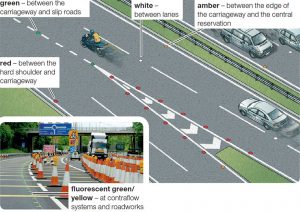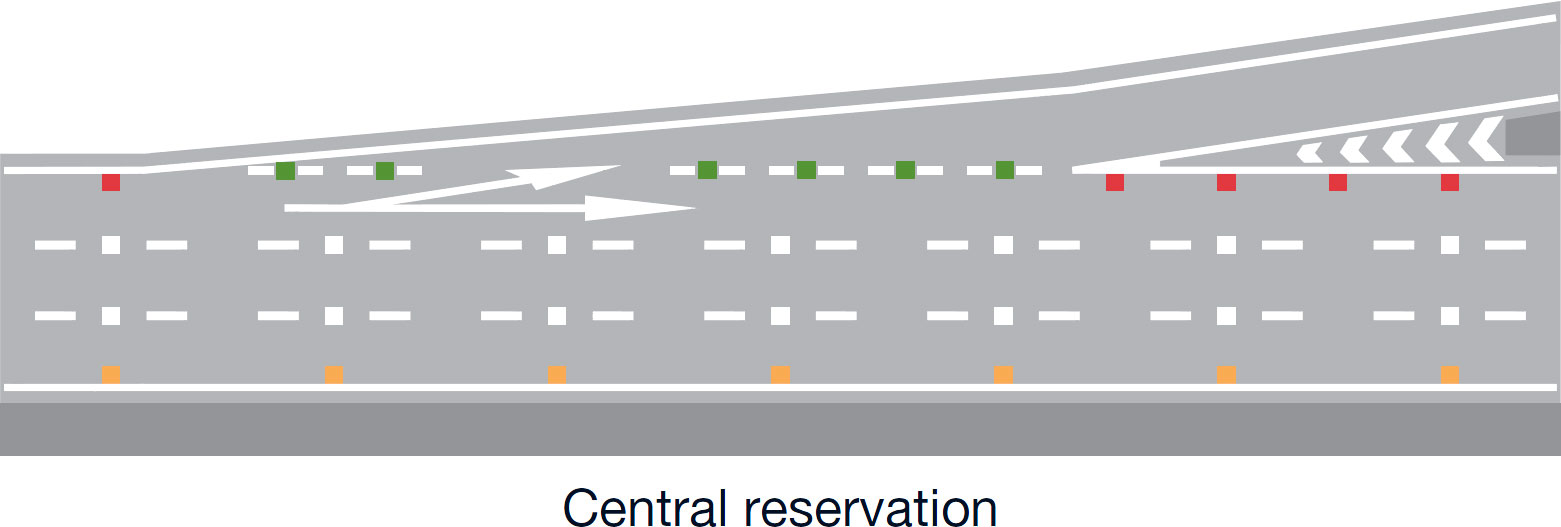Reflective amber studs are commonly found on UK motorways. According to Rule 132 of the Highway code, amber studs are used to mark the central reservation on both a dual carriageway and the motorway. They will also be used alongside blocked out white lines. Reflective amber studs help to indicate the road lane that is furthest away from the inside lane.
At night and when there is poor visibility, reflective studs can help you judge your road position. It is important to understand what all of the different colours of reflective studs represent to properly understand this question.
What do the different colours of reflective studs show?
Other colours of reflective studs are also used on UK roads. They will be used with a variety of white lines and indicate the following:
- White studs – These indicate the different lanes of a dual carriageway motorway OR on a road they are used to indicate the middle of the road.
- Red studs – These indicate the left-hand edge of the road or motorway.
- Green studs – These indicate that the main carriageway is passing alongside a slip road or lay-by.
- Green/yellow studs – Both green and yellow studs can be used to indicate temporary changes to the layout of road lanes on motorways or roads. These are common during road works.
Theory Test Question
So, how did you answer the theory test question: Where can you find reflective amber studs on a motorway? Let’s take each of the answers in turn:
Separating the lanes
Wrong! White reflective studs are used to indicate separate lanes on motorways.
On the right-hand edge of the road
Correct! Amber reflective studs indicate you are on the right-most lane of a dual carriageway or motorway.
On the left-hand edge of the road
Wrong! Red reflective studs are used to indicate the left-hand edge of the motorway or road.
Separating the slip road from the motorway
Wrong! Green reflective studs are used to indicate the separation between a slip road and the motorway carriageway.
References
On page 71 of Know your traffic signs, it states:




